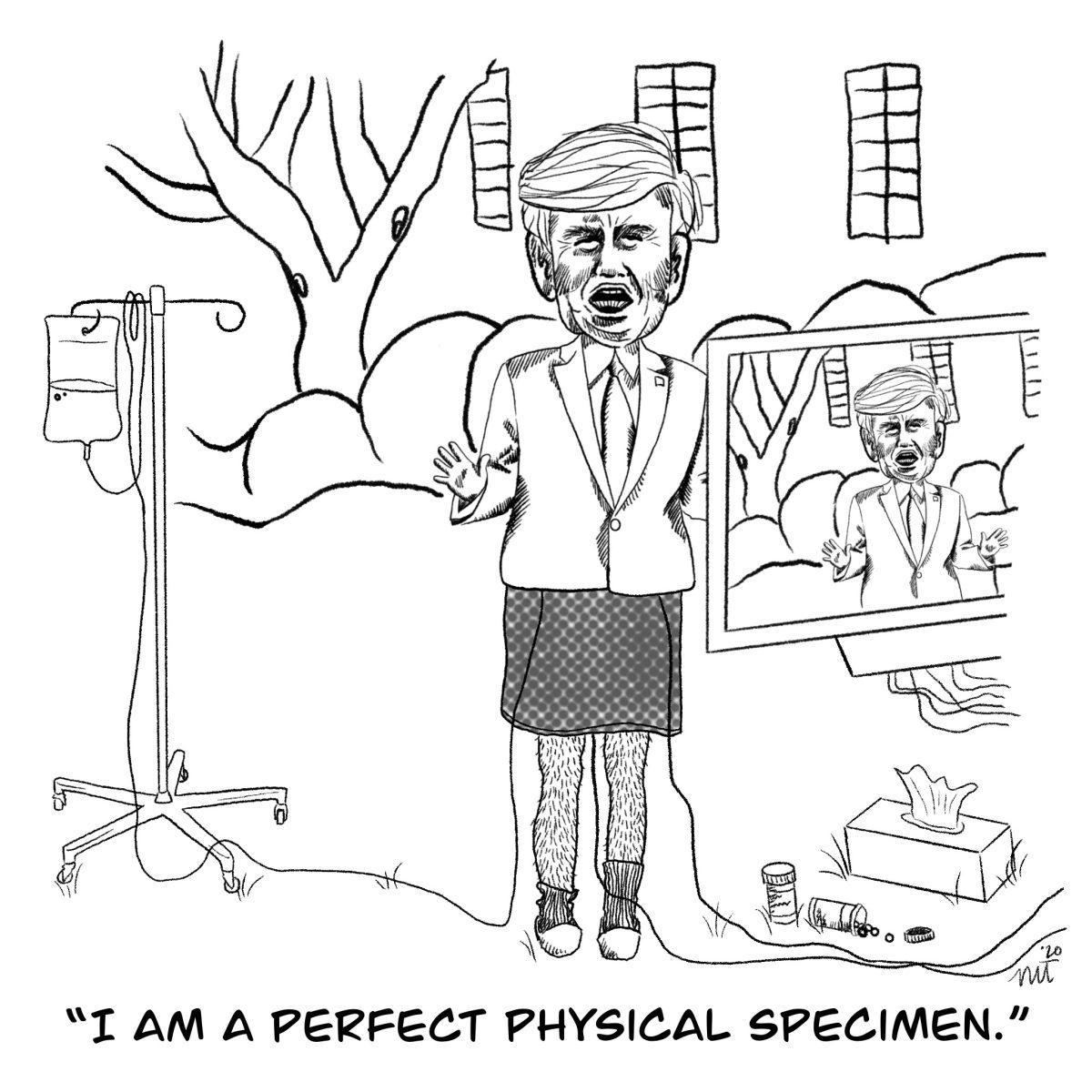In the early hours of Friday, Oct. 2, President Donald Trump hit send on a tweet confirming he and first lady Melania Trump had been diagnosed with the coronavirus. Twenty-four hours later, the President was at Walter Reed Memorial Hospital and a team of his doctors was addressing the media gathered outside.
The update delivered by the President’s physician, Navy Commander Dr. Sean Conley, was quite positive — Trump was in good spirits, fever free and able to walk out of Walter Reed if he so chose. Immediately after this rosy press conference however, a rogue official — later identified as White House Chief of Staff Mark Meadows — convened with a small group of reporters and offered sentiments in stark contrast to that of Conley: Trump’s vitals were not great, and the next 48 hours would be vital for the President’s health.
Not only do these two pieces of contrasting information muddle the truth, they epitomize politicking in the era of Trump and social media. The President harnesses chaos created by obfuscating facts and releases it onto social media platforms that feed on untruth. In this sense Trump has perfected the social media politics of the 21st century, and his strategy threatens the integrity of democracy in America.
To retain power, Trump will incite anger, hatred and violence between his loyal following and everybody else in an inflammatory appeal to human beings’ natural tribal tendencies, all through 140 characters on Twitter or brief campaign videos and slogans on Facebook. There is no better time to be a nationalistic populist than right now, and that is thanks to the groupthink propagated by platforms like YouTube, Instagram, Twitter and Facebook.
Social media allows individuals to plug into whatever sources of information they want and to surround themselves with people that agree with them and share the same information sources; the platforms themselves incentivize this by categorizing people into groups for the sake of clicks and profits. It’s a vicious, self-affirming cycle that doesn’t drive real dialogue over shared facts but rather drives regurgitation of talking points and perceived truths, no matter how reputably true they actually are. Roger McNamee, one of Facebook’s earliest investors and a former advisor to its founder Mark Zuckerberg, has observed this dynamic that blinds us to how manipulated our digital environments are.
“Each person has their own reality with their own facts,” McNamee said in an interview for “The Social Dilemma.” “Over time you have the false sense that everyone agrees with you because everyone in your news feed sounds just like you. And that once you’re in that state, it turns out you’re easily manipulated.”
Trump operates in the interconnected web of fake news and half-truths that drive his supporters on Facebook and Twitter. As long as the President can push whatever reality he wants on these folks, he can maintain his sense of security and portray himself as the self-assured leader he wants people to see him as. It’s all part of his political plan. The image of Trump comes before the reality of Donald.
This makes the job of the news media and key administrative officials essentially impossible. When the President can flip-flop on critical issues via a series of hastily typed tweets, how is any legislative progress supposed to be made? How is a citizen supposed to come to an understanding of what is really going on?
As long as social media profits off of propagating political falsehoods, which cascade through social media many times faster than truths, there is no incentive for politicians to run on platforms built on facts. They can simply peddle whatever information they want, without repercussions, to make sure the people voting for them see what they need to see.
The spread of false information and lack of a clear, guiding voice in regard to the health of arguably the most politically powerful individual on the planet is the most recent glaring example of this terrifying phenomenon. Without more responsibility placed on politicians and the social media platforms that allow the wildfire spread of false information, the U.S. will only see more Donald Trumps.
Trump and social media have built the playbook, now it’s only up to other politicians to follow it. Please, burn the playbook and start over.
Jacob Maranda ’22 is from Rock Island, IL.
His majors are economics and philosophy.





